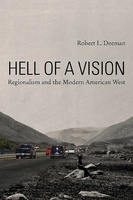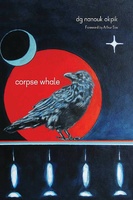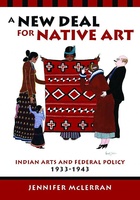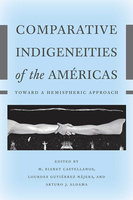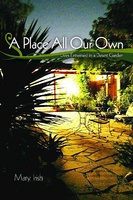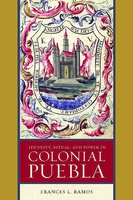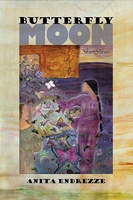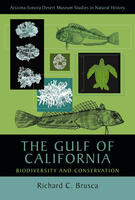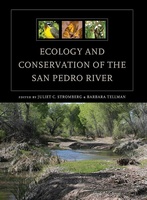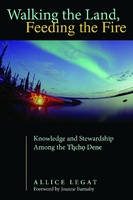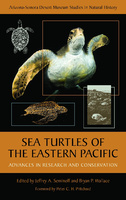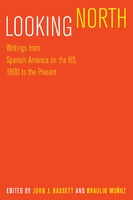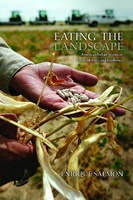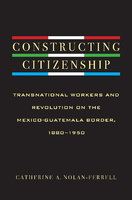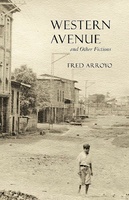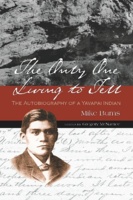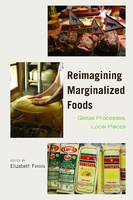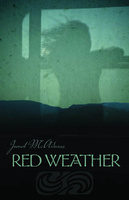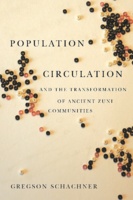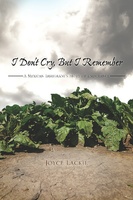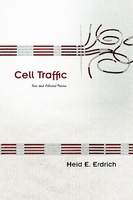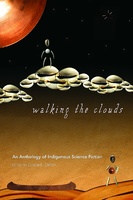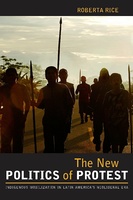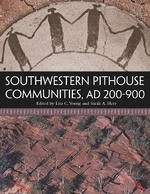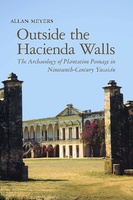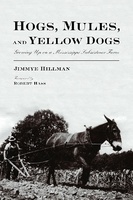The University of Arizona Press is the premier publisher of academic, regional, and literary works in the state of Arizona. They disseminate ideas and knowledge of lasting value that enrich understanding, inspire curiosity, and enlighten readers. They advance the University of Arizona’s mission by connecting scholarship and creative expression to readers worldwide.
Hell of a Vision
Regionalism and the Modern American West
Corpse Whale
A New Deal for Native Art
Indian Arts and Federal Policy, 1933-1943
Comparative Indigeneities of the Américas
Toward a Hemispheric Approach
A Place All Our Own
Lives Entwined in a Desert Garden
Pregnancy, Motherhood, and Choice in Twentieth-Century Arizona
Full Foreground
Butterfly Moon
Short Stories
Ecology and Conservation of the San Pedro River
We Will Secure Our Future
Empowering the Navajo Nation
Walking the Land, Feeding the Fire
Knowledge and Stewardship Among the Tlicho Dene
Sea Turtles of the Eastern Pacific
Advances in Research and Conservation
The oceanographic conditions that make this an epicenter of sea turtle activity promote massive artisanal and industrial fishing efforts that, coupled with illegal harvesting of eggs and turtles, have led to declines of several turtle populations in the region. The essays and stories in Sea Turtles of the Eastern Pacific describe for the first time the history of this exploitation, as well as recent sea turtle conservation initiatives and scientific research in the region.
Nikkei in the Interior West
Japanese Immigration and Community Building, 1882–1945
Looking North
Writings from Spanish America on the US, 1800 to the Present
Editors John J. Hassett and Braulio Muñoz present a collection of writings that provides a look into the ways in which Spanish America has viewed its northern neighbor over the past two centuries.
Eating the Landscape
American Indian Stories of Food, Identity, and Resilience
“Eating is not only a political act, it is also a cultural act that reaffirms one’s identity and worldview,” Enrique Salmon writes in Eating the Landscape. Traversing a range of cultures, including the Tohono O’odham of the Sonoran Desert and the Rarámuri of the Sierra Tarahumara, the book is an illuminating journey through the southwest United States and northern Mexico. Salmon weaves his historical and cultural knowledge as a renowned indigenous ethnobotanist with stories American Indian farmers have shared with him to illustrate how traditional indigenous foodways—from the cultivation of crops to the preparation of meals—are rooted in a time-honored understanding of environmental stewardship.
Constructing Citizenship
Transnational Workers and Revolution on the Mexico-Guatemala Border, 1880--1950
Western Avenue and Other Fictions
In this soulful collection of short stories, Arroyo shows us internal and external conflicts that are deeply rooted in—and affected by—place. A bodega, a university town, a factory, a Chicago street, some dusty potato fields: here is where we encounter ordinary people who work, dream, love, and persist in the face of violence, bereavement, disappointment, and loss—particularly the loss of mothers, fathers, and loved ones.
The Only One Living to Tell
The Autobiography of a Yavapai Indian
Reimagining Marginalized Foods
Global Processes, Local Places
This volume brings together ethnographically based anthropological analyses of shifting meanings and representations associated with the foods, ingredients, and cooking practices that of marginalized and/or indigenous cultures. Contributors are particularly interested in how these foods intersect with politics, nationhood and governance, identity, authenticity, and conservation.
Red Weather
Population Circulation and the Transformation of Ancient Zuni Communities
I Don't Cry, But I Remember
A Mexican Immigrant's Story of Endurance
In I Don’t Cry, But I Remember, Joyce Lackie shares with us an intimate portrait of Viviana Salgeuro’s life. Based on hours of recorded conversations, Lackie skillfully translates the interviews into an engaging, revealing narrative that details the migrant experience from a woman’s point of view and fills a gap in our history by examining the role of women of color in the American Southwest.
Cell Traffic
New and Selected Poems
Cell Traffic presents new poems and uncollected prose poetry along with selected work from award-winning poet Heid Erdrich’s three previous poetry collections. Erdrich’s new work reflects her continuing concerns with the tensions between science and tradition, between spirit and body. She finds surprising common ground while exploring indigenous experience in multifaceted ways: personal, familial, biological, and cultural.
Walking the Clouds
An Anthology of Indigenous Science Fiction
In this first-ever anthology of Indigenous science fiction Grace Dillon collects some of the finest examples of the craft with contributions by Native American, First Nations, Aboriginal Australian, and New Zealand Maori authors.
The New Politics of Protest
Indigenous Mobilization in Latin America's Neoliberal Era
Southwestern Pithouse Communities, AD 200-900
Outside the Hacienda Walls
The Archaeology of Plantation Peonage in Nineteenth-Century Yucatán
Drawing on a dozen years of archaeological and historical investigation, Allan Meyers breaks new ground in the study of Yucatán haciendas. He presents original data and fresh interpretations on settlement organization, social stratification, and spatial relationships.
Hogs, Mules, and Yellow Dogs
Growing Up on a Mississippi Subsistence Farm
To ensure that the world of Jimmye Hillman’s childhood in Greene County, Mississippi during the Great Depression doesn’t slip away, he has gathered together accounts of his family and the other people of Old Washington village. More than just childhood memories and a family saga, though, this book serves as a snapshot of the natural, historical, and linguistic details of the time and place. It is a remarkable record of Southern life.


